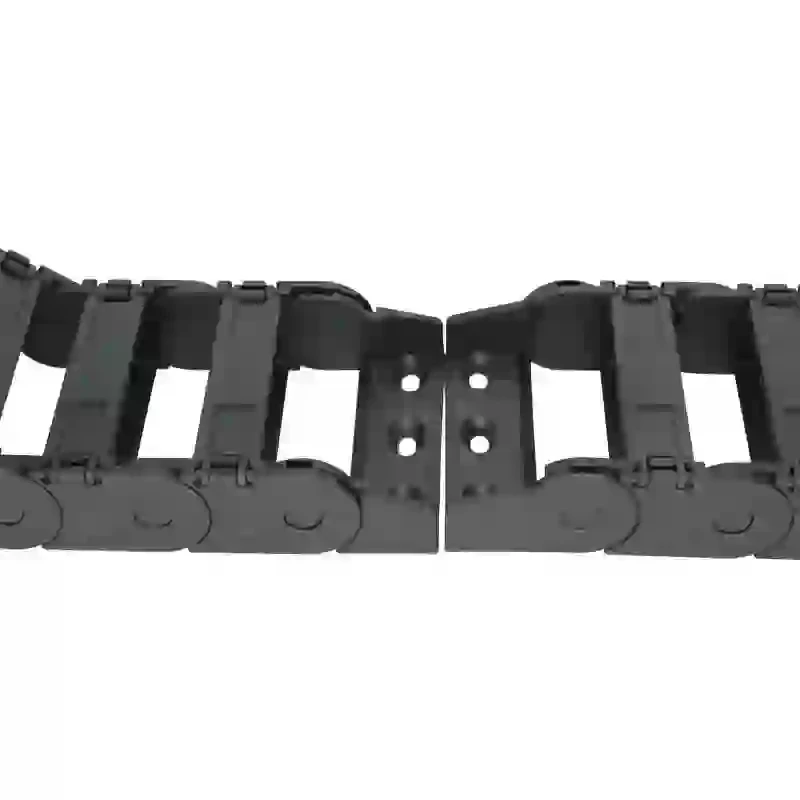stainless steel cable carrier
Understanding Stainless Steel Cable Carriers A Comprehensive Guide
In the realm of industrial automation and machinery, cable management plays a pivotal role in ensuring efficiency, longevity, and safety. Among various solutions available, stainless steel cable carriers have emerged as a vital component for various applications. This article delves into the importance, advantages, and applications of stainless steel cable carriers, providing a comprehensive understanding of this essential tool.
What Are Stainless Steel Cable Carriers?
Stainless steel cable carriers, also known as drag chains or energy chains, are specialized mechanisms designed to guide and protect cables, hoses, and wires in moving applications. They are particularly beneficial in environments where cables experience frequent motion or vibration, such as robotic arms, conveyor systems, and machine tools. These carriers provide a protective pathway for wires and cables, minimizing the risk of damage and wear.
Advantages of Stainless Steel Cable Carriers
1. Durability and Corrosion Resistance One of the most notable features of stainless steel cable carriers is their resistance to corrosion. Stainless steel materials are inherently resistant to rust and other forms of deterioration, making them ideal for harsh environments, including those exposed to moisture, chemicals, or extreme temperatures. This durability translates to a longer operational lifespan, reducing maintenance and replacement costs.
2. Strength and Load Capacity Stainless steel cable carriers offer high strength-to-weight ratios, enabling them to support substantial loads without compromising functionality. This makes them suitable for heavy machinery and equipment where traditional plastic or aluminum carriers might fall short.
3. Versatile Design Options Stainless steel cable carriers come in a variety of sizes, shapes, and designs, allowing for customization based on the specific needs of an application. Whether it’s a confined space or a setup requiring complex routing, these carriers can be tailored to meet exact specifications.
4. Heat Resistance Stainless steel cable carriers can withstand high temperatures, making them suitable for applications in foundries, forges, or other heat-intensive settings. This heat resistance ensures that the cables and hoses they carry remain protected, thereby maintaining operational integrity.
5. Enhanced Safety By organizing and securing cables, stainless steel cable carriers reduce the risk of tangling, pinching, or tripping hazards. This contributes to a safer work environment, particularly in busy industrial settings where machinery operates alongside personnel.
stainless steel cable carrier

Applications of Stainless Steel Cable Carriers
Stainless steel cable carriers find their usage across various industries, including
- Robotics In automated manufacturing and robotic applications, stainless steel cable carriers protect the wiring that powers motors and sensors, ensuring uninterrupted operation.
- Automotive In assembly lines and equipment operations, these carriers manage the routing of electrical and hydraulic lines, contributing to efficiency and streamlined processes.
- Aerospace The aerospace industry benefits from stainless steel cable carriers due to their lightweight yet strong structure, which is essential for aircraft systems management.
- Food Processing In environments where hygiene and cleanliness are paramount, stainless steel cable carriers are preferred due to their ease of cleaning and resistance to contamination.
- Marine Stainless steel’s resistance to saltwater corrosion makes these carriers ideal for marine applications, where durability in harsh weather conditions is crucial.
Conclusion
Stainless steel cable carriers play an indispensable role in modern industrial applications, providing efficiency, protection, and reliability. Their unique properties, including durability, strength, and corrosion resistance, make them suitable for a wide range of environments, from high-heat industrial settings to clean, hygienic applications. As industries continue to evolve and demand higher standards of performance and safety, stainless steel cable carriers are likely to remain a fundamental component in cable management solutions. Investing in quality cable carriers not only enhances the longevity of machinery but also contributes to safer and more productive work environments. Thus, understanding and utilizing stainless steel cable carriers can significantly improve operational effectiveness and reliability across various sectors.
Incorporating these carriers into your infrastructure is not just about keeping cables organized but also about investing in the future of your operational capabilities.








